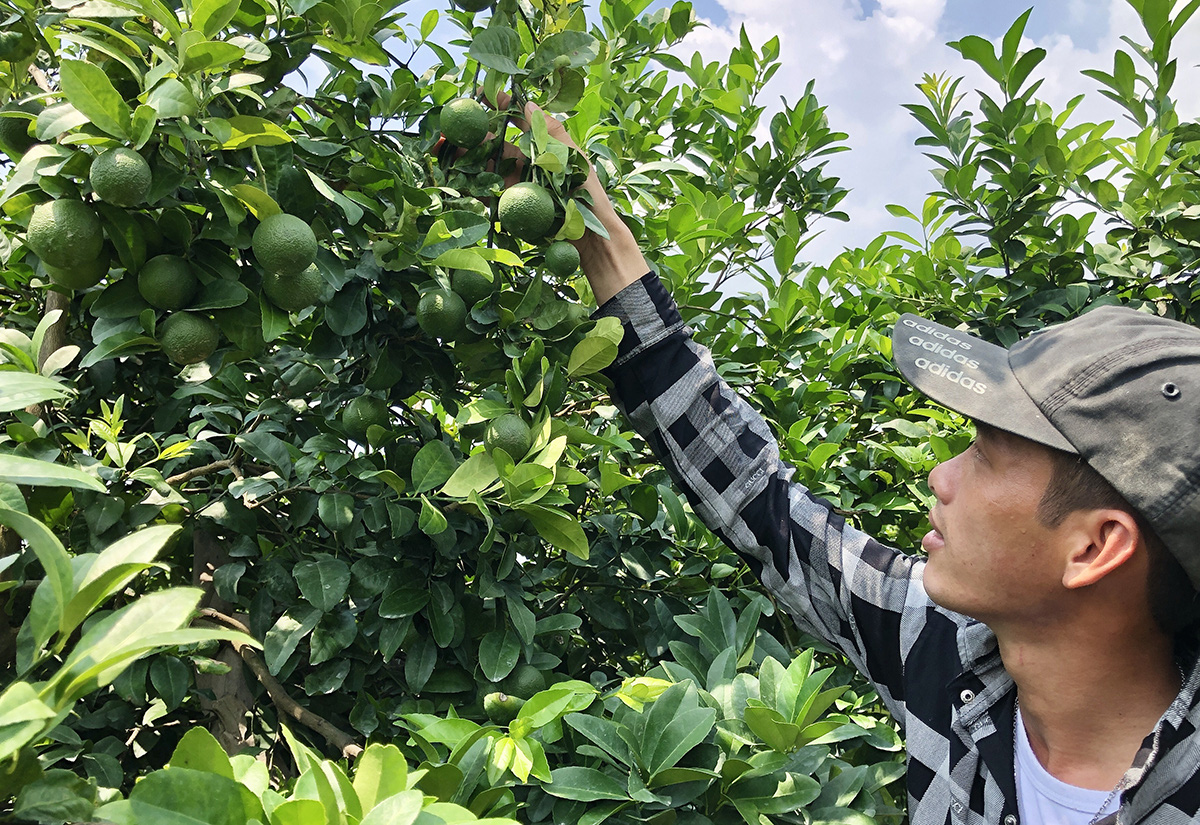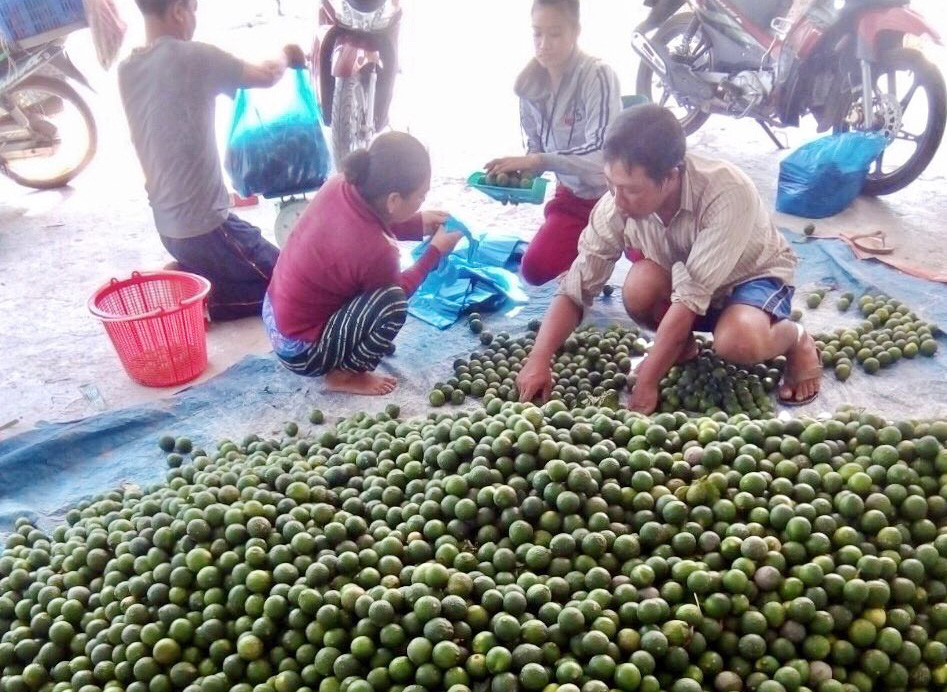Nguyen Van Pho, 24, has proved his own relatives and fellow farmers wrong with his successful lime farm in the Mekong Delta province of Kien Giang.
When Pho, from Tan Hoi Ward in Tan Hiep District, decided to quit his job as a factory worker and became a farmer with his first crop of rangpur lime (Citrus limonia), also known as mandarin lime, his family was at a loss for words.
That was four years ago.
Now, his budding farm has given him success beyond his wildest expectations.
Pho’s perseverance during this life-changing transition was essential to his success, especially since he chose to cultivate a variety of limes uncommon among other farmers.
In 2016, Pho quit his job as a factory worker in Tay Ninh Province, around 110 kilometers northwest of Ho Chi Minh City, and moved back to his hometown in Kien Giang so he could tend to his sickly mother.
During the three years working away from home, he germinated a faint idea of a farming business but was not sure what to do or how it would end up.
It was not until he made it back to his hometown that a clear idea to found his own venture started to really take form.
Despite a long-standing tradition of rice production and no successful attempts at lime farming in the region, the young man believed limes were the right fruit to invest in.
His plan was met with strong objections from his own father, who wanted him to follow in his footsteps to become a fisherman, and sneers from his neighbors who were convinced of his inevitable failure.
“I did take some fishing trips but knew the job was not for me. Keen on farming since I was a child, I wanted to be a farmer. Once I’ve set my mind to do something, nothing can stop me,” Pho recalled.
A relative in An Giang Province, also located in the Mekong Delta, suggested he give a shot at limes and offered him online instructions on farming techniques and outlets.
With his mother’s wholehearted support and the relative’s detailed instructions, the young man realized his farming idea in August 2016 with VND20 million (US$860) as initial funding.
Unsure if his plan would work, Pho grew the fruit on a trial basis on just 2,000 square meters of his family’s one-hectare plot, which had been leased for VND4 million ($170) for each 1,000 square meters every year.
“Despite my determination to put my love of farming to the test, I relied heavily on my relative for every single step, including seedlings, fertilizers, irrigation, and treating plant diseases. It took a while before I was able to grasp them all by myself,” he shared.
According to Pho, limes are a natural fit for the Mekong Delta’s climate and soil and do not require much care, but take up to 18 months before the fruit can be harvested.
He raked in a mere VND35 million ($1,500) in 2018 as the newly grown plants did not yield as many fruits as expected.
Though daunted by the modest profits, the young man understood that kickstarting a farm was a challenge. Instead of staying down in the dumps, he gave it another shot.
Pho later expanded the lime farming area to 8,000 square meters, while growing coconuts, Chinese olives, and jackfruits on the remaining 2,000 square meters.
His efforts finally paid off, as the farm now yields 500 kilograms to one metric ton every 20 days. He had a bumper crop in March last year, which sold for VND25,000 ($1.07) per kilogram and earned him VND97 million ($4,160) in profits. He had never dreamed of such an amount as a factory worker.
|
|
| Local merchants buy limes from Nguyen Van Pho’s farm in Tan Hiep District, Kien Giang Province in Vietnam’s Mekong Delta. Photo: Dieu Qui / Tuoi Tre |
As his success spread, local farmers came to him for seedlings and farming guidance.
Late last year, Pho pocketed another VND45 million ($1,930) for the sale of 3,000 seedlings.
However, prices fell by half, to only VND12,000 ($0.5) per kilogram during the novel coronavirus disease (COVID-19) epidemic, though he did manage to sell his entire yield.
During a normal year, limes fetch good prices in the first few months but the prices typically slump as the rainy season nears.
“Regarding market fluctuations, it takes patience, or one may suffer failures. Rock-bottom prices may be disheartening and result in neglect of the farm. I tend to the plants properly all year round and bide my time until the prices pick up,” Pho said.
The young farmer also dug ditches around his farm, with the volume of water to sustain the farm for two or three months as an effective way to cope with increasing water salinity in the Mekong Delta, which has taken a heavy toll on farmers over the past several years.
“At the onset of my journey, I gave it my all out of the fear of being laughed at if I failed and also to prove my dad wrong. Now, I’m doing it out of passion and a willingness to learn from failures, which I consider vital to success,” Pho shared, adding he also grows vegetables to earn extra money so he can buy more land to expand his farm.
Like us on Facebook or follow us on Twitter to get the latest news about Vietnam!





















































